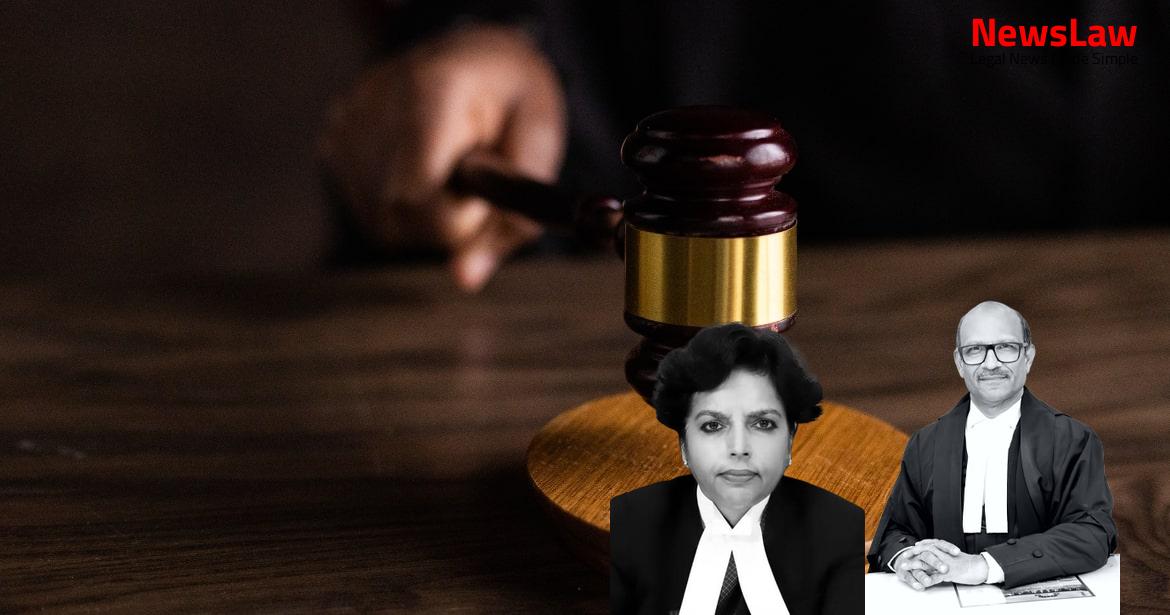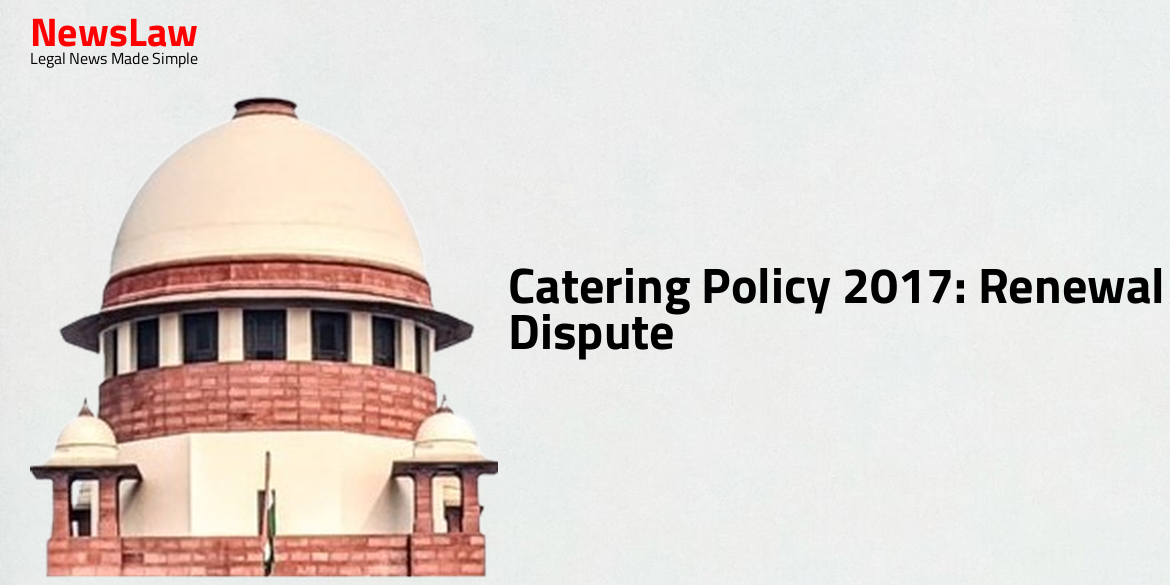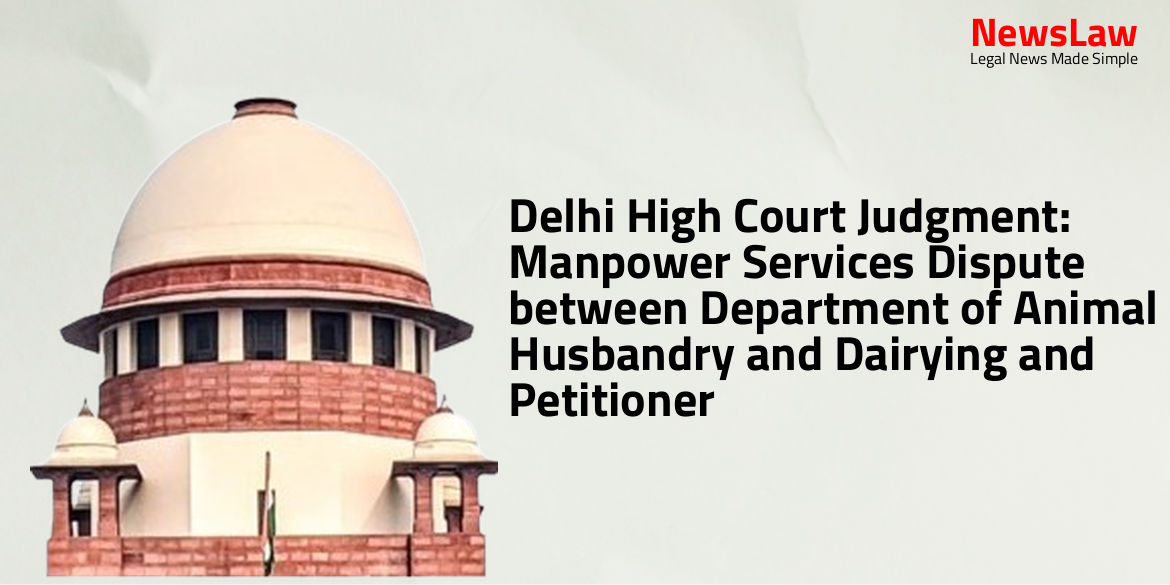A significant legal case involving the termination of a CRPF Constable was brought before the Supreme Court. The Court deliberated on the decision made by the Disciplinary Authority regarding the withholding of material information by the constable, leading to his removal from service. The case sheds light on the importance of transparency in job applications and the repercussions of providing false information. The judgment provides insights into the scrutiny applied to government servants in the context of employment integrity. #CRPF #SupremeCourt #LegalCase #DisciplinaryAuthority
Facts
- The respondent was dismissed from service by the Disciplinary Authority on 24 June, 2014.
- The dismissal was upheld by the Appellate Authority on 23 September, 2014.
- The High Court allowed a writ petition filed by the respondent on 27 March, 2018.
- The High Court set aside the dismissal order stating that the respondent was not aware of the criminal case when appointed, and later was acquitted by the court.
- The High Court found the punishment of removal from service as disproportionate to the offense committed by the respondent.
- The High Court directed the appellants to reinstate the respondent with all benefits and 50% back wages.
- The appellants were given liberty to impose a minor punishment instead of termination.
- The Division Bench dismissed the appeal against the judgment of the Single Judge.
- At the time of appointment on 30 November 2011, the respondent was not aware of any criminal case against him.
- The judgment stated that the respondent did not deliberately withhold any material information regarding his antecedents.
- The appellants have appealed against the Division Bench’s decision.
Also Read: Promotion Dispute: Upholding the Right to Equal Opportunity
Issue
- The issue at hand is whether the appellants were justified in terminating the services of the respondent on the post of Constable (GD) in the CRPF.
- The termination was based on the findings of a departmental inquiry which revealed that the respondent had failed to disclose two pending criminal cases in his Verification Roll.
- The CRPF required the respondent to provide all relevant factual information in the Verification Roll, as per the warnings given at the beginning of the form.
- The termination was linked to the failure to disclose the criminal cases, raising questions about the correctness of the decision.
Also Read: Supreme Court Judgment on Bail Orders for Respondents Waseem, Nazim, Aslam, and Abubakar
Arguments
- Ms. Nidhi Gupta, learned counsel for the appellants argued that the respondent had committed grave misconduct by suppressing material facts in his Verification Roll related to two criminal cases.
- It was pointed out that the respondent was removed from service due to the suppression of material facts, and even at the time of his removal, one criminal case was pending against him.
- The acquittal in one case post his removal did not change the fact that he had deliberately withheld important information about his antecedents.
- The offences mentioned in the criminal cases were serious, and the respondent was fully aware of their pendency when filling the Verification Roll.
- Any leniency towards the respondent would contradict established procedures under the CRPF Act, 1949, CRPF Rules, 1955, and the OM dated May 19, 1993, issued by the Department of Personnel and Training, Government of India.
- Rule 11 of the Central Civil Services (Classification, Control and Appeal) Rules, 1965, mandates the dismissal of a government servant who furnishes false information to secure appointment, after conducting an inquiry.
- Crime in question related to a land dispute among villagers, resulting in a FIR against the respondent and his family members.
- Criminal Court acquitted the respondent vide order on 22 October, 2014.
- Inquiry initiated against the respondent based on Memorandum of Charges dated 09 July, 2013.
- Respondent gathered knowledge about the case for the first time during this inquiry, where his name was falsely included in a quarrel over a plot of land.
- No warrant or summon issued against the respondent, which was ignored by the appellants during termination of his service.
- Learned counsel asserts that the respondent was falsely implicated in criminal cases and deserves leniency.
- Option given to appellants to reconsider the case of the respondent and award him lesser punishment instead of removal from service.
Also Read: Time as Essence of Contract in Sale Agreement: Legal Analysis
Analysis
- Before a person can be held guilty of suppressio veri or suggestio falsi, knowledge of the fact must be attributable to him
- Case pending against the person in any University or Educational Authority/Institution must be disclosed at the time of filling up
- The respondent was taken into judicial custody and granted bail before filling up the Verification Roll.
- The respondent was aware of the criminal cases pending against him but chose to withhold this information.
- The Inquiry Officer’s report confirmed the allegations of misconduct and concealment of facts by the respondent.
- The termination of the respondent’s services was based on his failure to disclose pending criminal cases, not the outcome of the cases.
- The acquittal of the respondent was due to lack of evidence, not a clean acquittal.
- The standard of rectitude for appointments in Law Enforcement Agencies must be higher due to the responsibilities involved.
- The employer has the right to consider antecedents and take appropriate action if false information is provided.
- The credibility and trustworthiness of an employee who provides false information at the time of employment is crucial.
- Employers may consider various aspects such as the nature of the offence and the impact on suitability before making a decision.
- Information provided to the employer must be true with no suppression or false mention.
- The verification of antecedents is crucial to determine the fitness of an incumbent for a position.
- The employer must act prudently and consider the nature of the post and duties to be performed.
- Higher positions require more stringent standards to be applied.
- Suppression of material information, submission of false information, or involvement in criminal proceedings can impact one’s employment eligibility.
- Guidelines from the Avtar Singh case emphasize the importance of accurate disclosures for determining fitness for appointment.
- Even if a truthful disclosure is made, the employer has the right to assess the candidate’s fitness, especially regarding concluded criminal cases.
- Employers can refuse to employ or continue the service of individuals deemed of suspect character or unfit for the post.
- Daya Shankar Yadav case discusses the consequences of false information on character and antecedents provided by a candidate.
- Employers may refuse to employ or discharge individuals for false information even if cleared of charges or acquitted, as non-disclosure itself can be a reason for rejection.
- The State of Madhya Pradesh case highlights the stringent standards for Law Enforcement Agencies in assessing candidates’ eligibility.
- Employers have the discretion to terminate or condone omissions in the disclosure made by a candidate.
- Disciplinary Authority terminated the respondent’s services with valid reasons upheld by the Appellant Authority.
- The appellants exercised their discretion reasonably as employers.
- Decision to terminate services deemed justified, free from malafides, arbitrariness, or harshness.
Decision
- The impugned judgment dated 07 February, 2019 by the Division Bench of the High Court is quashed and set aside.
- The judgment dated 27 March, 2018 by the Single Judge is also set aside.
- The order dated 24 June, 2014 by the Disciplinary Authority, endorsed by the Appellate Authority on 23 September, 2014, is restored and upheld.
- The proceedings were conducted fairly and brought to a logical conclusion.
- Each party is responsible for their own expenses.
- The present appeal is allowed.
Case Title: UNION OF INDIA Vs. SHISHU PAL @ SHIV PAL (2024 INSC 550)
Case Number: C.A. No.-007933-007933 – 2024



